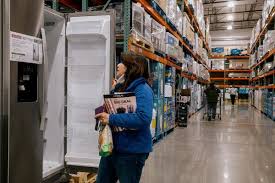In the ever-changing landscape of global trade, President Donald Trump's tariff announcements continue to send shockwaves through markets worldwide. Despite his assurance that tariffs won't result in higher prices, the reality is quite the opposite as inflation gradually climbs due to the impact of these trade policies. Trump's recent hike in import taxes, set to take effect imminently, will directly lead to increased prices for imported goods in the United States. While businesses initially absorbed some of these costs, the mounting pressure may soon compel them to pass on these expenses to consumers, translating into higher price tags for Americans.
Among the various products facing price hikes, computers stand out as one of the top imported goods in the United States. With countries like China, Mexico, Taiwan, Vietnam, and Malaysia being significant sources of electronic products for the US market, the impending tariffs on these countries are poised to elevate prices significantly. Furthermore, the tariffs on apparel, watches, shoes, wine and spirits, furniture, toys, and other consumer goods imported to the US are expected to impact pricing dynamics across various industries.
The impact of these tariffs is not confined to just the immediate term but has long-lasting implications on consumer prices. Economists predict that the short-term effects could lead to a substantial average increase in prices, while the long-term impact is also notable. With global supply chains intricately connected, the ripple effects of these tariffs are felt not only in the US but also resonate across various partner nations, further complicating the intricate web of international trade.
Trump's approach to trade policy, characterized by surprise announcements and shifting deadlines, has created an environment of uncertainty in global markets. The element of unpredictability in his trade negotiations has upended traditional diplomatic norms, as seen in the renegotiation of agreements and the imposition of tariffs on key trading partners. While there have been tangible outcomes like the US-Mexico-Canada Agreement, the uncertainty generated by these abrupt policy changes is unsettling for businesses and investors alike.
The tariff landscape is evolving rapidly, with recent adjustments unveiled in the eleventh hour underscoring the volatility of the current trade environment. As negotiations continue with major economies like China, the specter of further tariffs looms large, adding to the prevailing atmosphere of instability. The haphazard implementation of tariffs and constant reshuffling of trade policies not only impact pricing but also erode confidence in the predictability of global trade rules.
Navigating these turbulent waters requires adaptability and agility from all stakeholders involved. Companies, countries, and investors are compelled to stay attuned to the latest developments, adjusting strategies swiftly in response to the shifting trade dynamics. The intricate dance of tariffs, negotiations, and market reactions underscores the interconnectedness of the global economy, where a single policy decision can trigger a cascade of repercussions across borders.
In a world where trade tensions are a constant companion, the ramifications of tariff hikes extend far beyond mere economic indicators. The ever-present specter of trade disputes underscores the need for resilience and flexibility in navigating the evolving trade landscape. As the saga of tariffs unfolds, the unpredictable nature of global trade under the Trump administration continues to challenge established norms and reshape the contours of international commerce.
In conclusion, the trajectory of global trade under the shadow of tariffs remains fraught with uncertainty, presenting both challenges and opportunities for economies worldwide. Navigating this complex terrain demands a delicate balance of diplomacy, strategy, and foresight to mitigate the impacts of tariffs on businesses, consumers, and the broader economic ecosystem. As the world watches the tariff saga unfold, the resilience of economies and the adaptability of market participants will be crucial in shaping the future of international trade relations.
—
The article discusses the impact of President Donald Trump's tariffs on various imported goods, highlighting the potential price hikes faced by American consumers. It delves into the implications of these tariffs on global trade dynamics, emphasizing the uncertainty and volatility introduced by Trump's trade policies. The narrative underscores the need for adaptability and foresight in navigating the evolving trade landscape shaped by these tariff developments.


